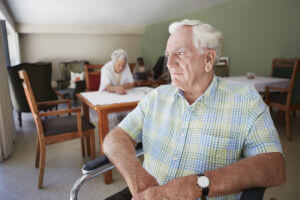
Whiplash is caused by a sudden extension and contraction of the ligaments and tendons in the neck and shoulders. This injury can occur in a variety of accidents, but is most commonly associated with car accidents, usually rear-end accidents.
If the accident was caused by someone else’s negligence, you may be able to obtain compensation for medical expenses and other damages.
However, whiplash claims are often viewed with suspicion by insurance companies, judges, and juries. The steps you take in the immediate aftermath of your accident will go a long way in convincing insurers and others of the validity of your claim.
The Nye Law Group’s Savannah personal injury attorneys will advise you to take the following steps to help improve your chances of success:
SEEK MEDICAL ATTENTION IMMEDIATELY
Waiting too long after the accident to be seen by a doctor is sure to arouse suspicion among insurance companies and others about the truth of your injuries, particularly with whiplash.
Unfortunately, some people who suffer whiplash in an accident wait to seek medical treatment because they are not experiencing pain or other symptoms and they think they are OK.
In some cases, it takes up to 24 hours for people with whiplash to experience any symptoms. These symptoms can be masked by adrenaline and cortisol, which are released into the bloodstream after an accident.
Fortunately, trained medical professionals will know how to spot the signs of whiplash, even if you are not experiencing symptoms, which could include:
- Neck pain and stiffness
- Loss of range of motion in the neck
- Tingling or numbness in the arms
- Dizziness
- Fatigue
- Headaches
- Shoulder, upper back, or arm pain
- Worsening pain with neck movement
Some victims will also experience more severe symptoms such as blurred vision, sleep disturbances, difficulty concentrating, memory problems and depression.
FOLLOW ALL INSTRUCTIONS FROM YOUR DOCTOR
This further bolsters your claim by showing that you are truly injured and are doing everything in your power to recover.
If the doctor tells you to follow-up with a specialist, make an appointment as soon as possible. Take any prescription medications the doctor advises you to take.
If your claim is successful, you will receive compensation for co-pays and other out-of-pocket expenses related to your treatment.
FILE A CLAIM IMMEDIATELY
If the doctor diagnoses you with whiplash, you need to file a claim for compensation right away.
North Carolina, South Carolina, and Georgia are fault states, so if you suffered whiplash in a car accident, you can pursue compensation from your insurer, the at-fault driver’s insurer or a personal injury lawsuit.
However, it is usually best to start with an insurance claim, and if you are unable to negotiate a fair settlement, you can file a personal injury lawsuit. This applies to car accidents and other types of accidents.
When speaking with the insurance adjuster, stick to the basic facts and avoid discussing your injuries. The danger of discussing your injuries is that you will minimize them or talk about how much pain you are in. This could doom your claim or lower your compensation award.
The adjuster can review your medical records or speak to your doctor to get the details about your injuries.
COLLECT MEDICAL DOCUMENTATION
This is arguably the most important evidence in your personal injury claim. Medical documentation includes:
- Emergency room admission forms
- Medical charts
- X-rays
- CT scans
- Blood tests
- Doctor’s notes
- Records of follow-up treatments
- Other tests ordered by doctors
CONTACT A PERSONAL INJURY LAWYER
The attorneys at The Nye Law Group can carefully review your claim to determine all of your legal options. We can speak to the insurance company on your behalf and handle settlement negotiations so you can focus on your recovery.
We will advise you throughout the legal process, telling you what steps to take and what documents you need to build a strong case.
If we are unable to reach a fair insurance settlement, we are prepared to file a personal injury lawsuit to obtain the compensation you deserve.
Call our lawyers right now at 855-856-4212 or Live Chat with a representative.





